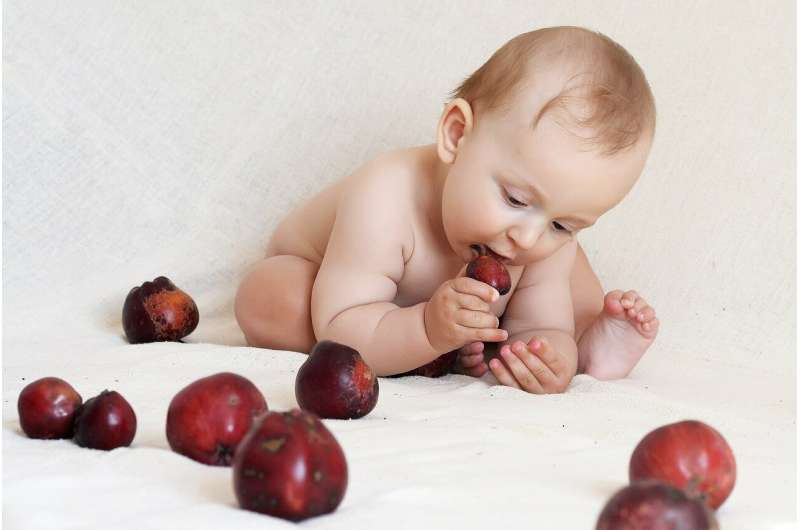Ask the Pediatrician: What should 2-year-olds eat?


Q: My toddler is getting more curious about food and feeding himself. What are good things to give to him and what should I avoid?
A: It’s great that your toddler is showing interest in what he eats and wants to be a part of choosing foods. With your 2-year-old’s blossoming language and social skills, he’s ready to become an active mealtime participant. He should no longer be drinking from a bottle and he can now eat many of the same foods that the rest of the family is enjoying. His diet should include three healthy meals a day, plus one or two snacks.
Here are some mealtime tips for toddlers in general:
- Try not to fixate on the amounts of food they are eating.
- Avoid making mealtimes a battle.
- Pay attention to adopting healthy eating habits, including sitting down as a family at mealtime.
- Focus on making healthy food choices as a family.
At 2 years old, a child should be able to use a spoon, drink from a cup with one hand, and feed themselves a wide variety of finger foods. However, they are still learning to chew and swallow efficiently and may gulp food down in a hurry to get back to playing. For that reason, the risk of choking at this age is high.
Avoid these foods, which could be swallowed whole and block the windpipe:
- Hot dogs (unless cut in quarters lengthwise before being sliced)
- Chunks of peanut butter (Peanut butter may be spread thinly on bread or a cracker, but never give chunks of peanut butter to a toddler.)
- Nuts, especially peanuts
- Raw cherries with pits
- Round, hard candies, including jellybeans
- Gum
- Whole grapes
- Marshmallows
- Raw carrots, celery, green beans
- Popcorn
- Seeds, such as processed pumpkin or sunflower seeds
- Whole grapes, cherry tomatoes (cut them in quarters)
- Large chunks of any food such as meat, potatoes, or raw vegetables and fruits
The best foods for toddlers include:
- Proteins like meat, seafood, poultry, eggs, nuts, seeds and soy
- Dairy such as milk, yogurt, cheese, or calcium-fortified soy milk
- Fruits and vegetables
- Grains, such as whole wheat bread and oatmeal
It is normal for toddlers to choose from a limited number of foods, reject foods entirely, and then change their preferences over time. Never force your child to eat something they do not want. The best approach is to let a child choose from a few healthy options and continue to offer new foods as their tastes change.
Offering a variety of foods and leaving the choices up to your child will eventually allow them to eat a balanced diet on their own. Toddlers also like to feed themselves. So, whenever possible, offer your child finger foods instead of cooked ones that require a fork or spoon to eat.
As for vitamin supplements, they are rarely necessary for toddlers who eat a varied diet, with a few exceptions:
Vitamin D: Infants under 12 months of age require 400 International Units of vitamin D per day and older children and adolescents require 600 IU per day. This amount of vitamin D can prevent rickets, a condition characterized by the softening and weakening of bones. If your child is not regularly exposed to sunlight or is consuming enough vitamin D in their diet, talk to your pediatrician about a vitamin D supplement.
Iron: Supplemental iron may be needed if your child eats very little meat, iron-fortified cereal, or vegetables rich in iron. Large quantities of milk (more than 32 ounces per day) also may interfere with the proper absorption of iron, increasing the risk of iron deficiency anemia.
Calcium: Your child should get two cups of dairy each day. This can come from dairy or soy milk, yogurt or cheese. This will provide most of the calcium they need for bone growth.
Source: Read Full Article




